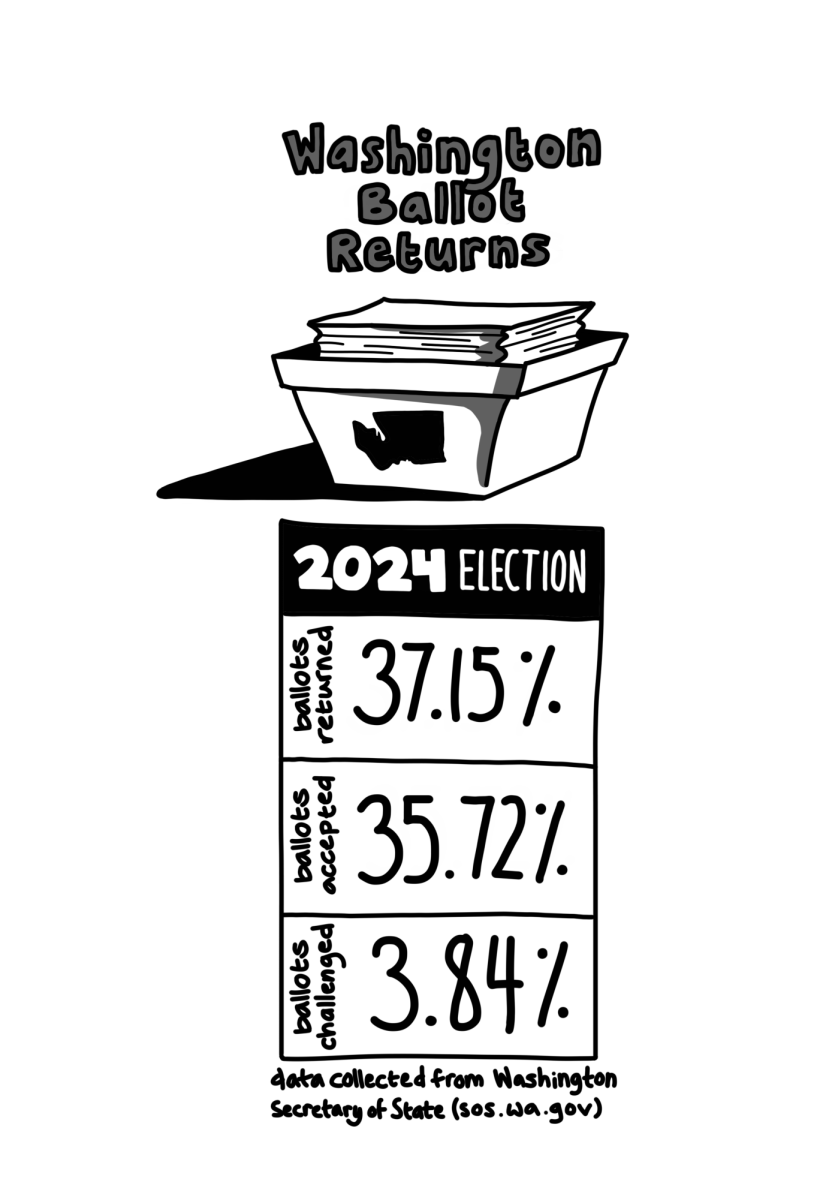Rebecca Walker, named by TIME Magazine as one of the 40 most influential Americans under the age of 40, spoke in Cordiner Hall on Jan. 23 on the topic of building upon Dr. Martin Luther King Jr.’s work in order to cultivate unity and a more peaceful world. The lecture was the third in a series of events this week hosted by the Black Student Union, the Intercultural Center and ASWC in commemoration of the legacy of Dr. King.

Following a warm introduction by Professor Jacqueline Woodfork, Walker began her lecture not by immediately jumping into the deep waters of race and politics, but with a simple observation of her podium. Walker related an anecdote in which a colleague of hers once called a podium the “patriarchal pulpit,” because of the divisive relationship it sets up between the speaker and the listener, giving the impression that the audience needs all the knowledge and the speaker has all of the knowledge.
Denouncing this, Walker said, “I like to just start by saying that if I didn’t need the patriarchal pulpit to actually hold my pages, generally I would be out here in front of you, creating a much more open and intimate space, because I think there is so much I can learn from you.” This appeal to openness between all, the removal of the podium and the exchange of knowledge, serves as an apt metaphor for the rest of Walker’s lecture.
With this openness in mind, Walker then discussed her purpose in coming to speak to college students.

“I hope that as a result of my being here, we can have a brief moment of contemplation and discussion on some very deep issues, not only regarding the position of race, gender, class and sexual orientation, or politics in American culture, but of our humanity itself,” she said.
She then talked with evident excitement about how this lecture came only days after the inauguration of the first African American president, and only two days after the day on which we honor Dr. King.
“On [this] day [we have] an opportunity to reflect on how we can aspire to be better people, to commit to our own evolution as human beings,” she said.
Fitting perfectly with the series of events that BSU planned in honor of MLK Day, Walker conveyed her respect and admiration for Dr. King. She spoke to the past, the present and the future in relation to his struggle for all-inclusive civil rights.
“He was committed to the end of the racial caste system as well as the American legacy of economic caste. He rallied for the poor, demanding that we look not only at race as a crippling force in American life, but poverty as well… If he were alive today, I have no doubt that he, as his wife Coretta Scott King has already, would support the full enfranchisement of gays and lesbians and would strike the chord of urgency still missing in the ongoing pursuit of the full equality of women under the law.”
Walker’s lecture is one of five events taking place this week organized by the Black Student Union in commemoration of the memory of Dr. Martin Luther King, Jr. The week-long celebration began with a candlelight march through Walla Walla on Monday and will end with a hip-hop concert in Reid Campus Center featuring Seattle rapper International Mo B. on Friday.
Sophomore Alisha Agard, the president of BSU, helped to organize the lecture and Walker’s visit to campus.
“I was looking for a speaker to bring to campus, and I found a couple of speakers who came to Boise State for their MLK celebrations. Her talk really talked about the civil rights movement in the past and also currently … I think that it fit in really well in celebrating MLK and his legacy,” she said.
Agard stressed that Whitman students can learn and apply a lot from Walker’s lecture.
“Even though there are people who think differently than you do or have different opinions, to still be able to listen and have that respect for their opinions even though they’re different than yours; I think that was a great message that I left with and that I hope everyone else who came tonight left with because we still have a long way to go before things are truly progressive,” she said. “Being open to other people and having an open mind will bring us closer to achieving that.”










